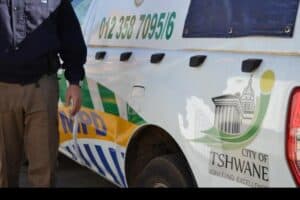Mayor Moya has established a subcommittee to prevent more townships from popping up.

While City of Tshwane Mayor Nasiphi Moya has declared Kleinfontein among 17 illegally established townships in city, the Afrikaner-only town’s leadership says nothing could be further from the truth.
Earlier this week, Moya confirmed that the city has identified 17 illegally established townships within the metro’s boundaries, some established on municipal land or private property. These include:
- Leeuwfontein;
- Kleinfontein;
- Moshate Gardens;
- Marula View;
- Mooikloof (Tweefontein) Wallmannsthal;
- Haakoringboom;
- Onderstepoort;
- Elandsfontein Plots; and
- Moloto City.
Moya said the individuals responsible for these settlements did not follow the legal framework that governs township establishment.
“In most cases, no formal township application was lodged, environmental and planning approvals were bypassed and no bulk infrastructure was planned or installed,” she said.
Moya said these illegal developments now face a host of serious challenges, including inadequate access to water, electricity, sanitation, and roads, poor spatial integration and service delivery backlogs.
Moya has established a mayoral subcommittee to prevent more townships from popping up.
The High Court in Pretoria declared Kleinfontein illegal last year and ordered the city to enforce its laws and regulations in the area. The settlement’s leaders said they planned to challenge this in court.
Town not illegal, says CEO
Kleinfontein CEO Stefan Wiese welcomed the establishment of this committee, but disputed that the town is an illegal township.
“Kleinfontein is a legally established cultural settlement in terms of section 235 of the constitution of the Republic of South Africa, which provides for the right to self-determination of cultural communities.
“This status was formally acknowledged by the Gauteng legislature in 2013, following a visit to Kleinfontein by members of the provincial legislature, who recognised our community as a legitimate cultural expression under the constitution,” he said.
Wiese said Kleinfontein is built on private land, legally bought and fully paid for by its members and developed using funds raised entirely by the community.
“We have received no government grants or assistance in this regard,” Wiese said.
“Kleinfontein is also not a burden on the City of Tshwane. Since our establishment more than 30 years ago, we have provided all municipal-type services internally, including water, sanitation, electricity distribution, refuse removal and internal security.
“We do not receive or require any municipal services from the city. Importantly, Kleinfontein has had an active rezoning application with the City of Tshwane since 2013.”
Wiese said they were relieved that this matter may now finally receive the attention it deserves through the work of the subcommittee.
“A resolution to this long-outstanding application will bring clarity and benefit all,” he said.
What the committee will do
The subcommittee’s focus will be on reviewing the findings and legal implications of the 17 identified illegal townships, consulting with affected communities and property owners, engaging relevant departments and enforcement agencies and recommending a consolidated approach and draft policy for the council’s consideration.
The committee includes the MMC for human settlements Aaron Maluleka, the MMC for economic development and spatial planning Sarah Mabotsa, the MMC for utilities Frans Boshielo, and the MMC for community safety Hannes Coetzee.
ALSO READ: EFF to march to exclusive Afrikaner township Kleinfontein
Are they paying tax?
Tshwane DA caucus spokesperson Jacqui Uys said the party hopes the outcomes of the committee’s investigations will be fair towards all the ratepayers and residents of Tshwane.
“The City of Tshwane has 19 illegally established developments, like Kleinfontein, Leeufontein and Moshate Gardens, where approximately 19 500 individuals are not charged rates and taxes. The city chose to leave some untaxed, yet charges punitive taxes on others,” she added.
Uys said it is not fair to Tshwane taxpayers that these areas are exempt from paying tax.
“However, many of whom the homeowners in these developments were hoodwinked by developers when purchasing their properties and were unaware of the accompanied illegalities, thus a punitive tax is also unfair,” she concluded.






